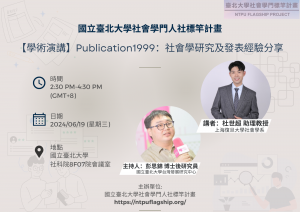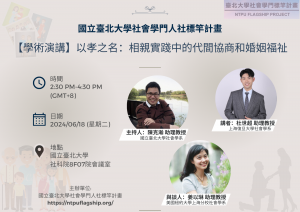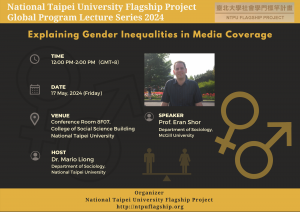

Professor Francis is a scholar of special education at George Mason University, home to two individual post- secondary education programs for students with intellectual and developmental disabilities and students with autism respectively, whilst she herself was the director of a similar program at the University of Missouri-St. Louis.
Dr. Francis’ research is primarily focused the representation, performance, and outcomes of students with intellectual and developmental disabilities in post-secondary education settings. This speech in particular provides us a foundational understanding of how the relationships between the families of students and educational professionals affect the experience of a student with intellectual disabilities, as attending university offers them degrees of independence that both the student themselves and their families have rarely seen before.
Whilst intellectual disabilities are underrepresented in general—from communities to employment—there is little surprise that students with intellectual disabilities severely lack representation in post-secondary education settings, despite research indicating the benefit of higher education to these students. University, both the education received there and the experiences that come with it, is shown to increase their likelihood of finding employment, of living independently, of building a social life; besides the academic benefits that could arguably apply to all students, the university experience clearly facilitates development for multiple life-skills in a student with intellectual disability.
A student gaining independence, however, relies on the condition that their family is willing to let them have such independence, but a few factors may hinder family members’ willingness to “let go”. To begin with, university laws regarding family-professional partnership differ from that of high schools, causing confusion for families making the transition. Although research has shown that a good, cooperative relationship between families and professionals (both academic and administrative) encourages students’ potential to thrive, the families’ concern for their child may dent this relationship despite good intentions. Dr. Francis’ research is especially crucial in this regard, since we do not yet have sufficient information on these types of family members from the perspectives of professionals, much less strategies from this perspective that aim to improve family-professional partnerships. Through interviews with twenty-three participants, Dr. Francis sought to better understand the current state of interactions between family members and university staff,with help from team members to ensure that Dr. Francis’ own specialised background in special education did not heavily sway the interpretation of interviews and data.
Findings show that a primary barrier was a heavy sense of uncertainty on the families’part. As their children with special needs enter the university environment, families did not feel properly informed on aspects of the student’s day-to-day life that they previously had full control over, such as health care, transportation and social life. In response to stress out of uncertainty, families tend to over-monitor their children or have difficulty relinquishing control. Along the same vein, families may expect staff to be more attentive or forgiving, whilst university professionals set expectations for their students different to that of families’. Conversely, families that set high standards for their children build better partnerships with university professionals. Families’ trust in professionals not only allows for space for their child’s independence, it also makes them more receptive to guidance from professionals, becoming more flexible regarding the treatment of their child as a student in university, adjusting their own involvement and expectations accordingly.
Many of the strategies suggested by professionals for building a better partnership with families directly respond to the concerns above, and centred around eliminating as many variables as possible, clearly informing students and parents of the resources available to them, signing contracts that establish what is expected from students, and establishing a communication protocol between families and staff that still involve the student. Mid-semester workshops, social events, and meetings aimed at promoting positive communication between families and their children, facilitated and guided by professionals, were also suggested. Finally, consistency of staff is mentioned as a key to earning—and keeping—the students trust, without which all would be fruitless.
Dr. Francis’ research not only illustrates the current landscape, it is also a starting point for future strategies to prepare students with intellectual and developmental disabilities for post-secondary education, create external support for families to lessen uncertainty and anxiety, and provide the foundational information to ascertain the “perfect” level of family involvement for students to thrive.



